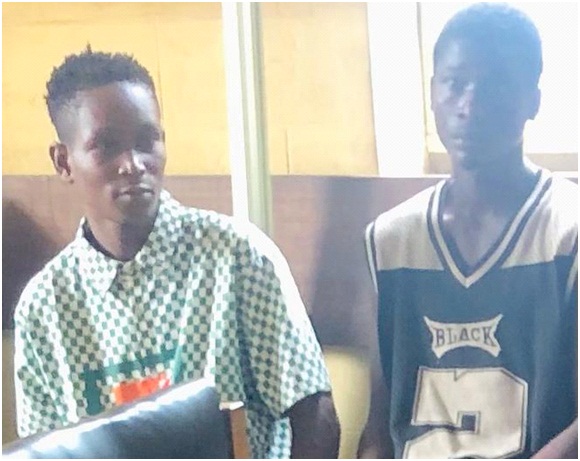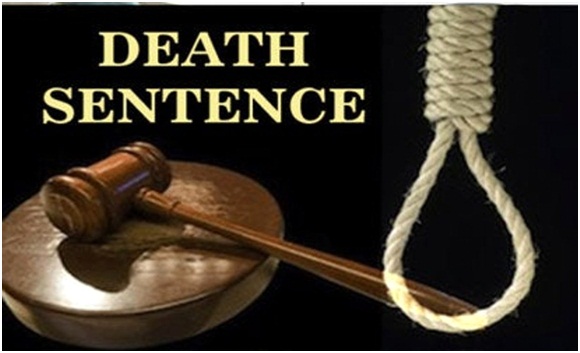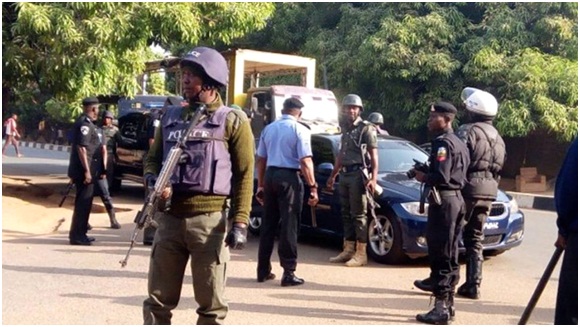Payment of LUC will be easy for everybody – Chairman, Ondo BIR

 Mr Tolu Adegbie is the Ondo State Chairman Board of Internal Revenue( BIR). In this interview with Lola Omowaye, he speaks on the Land Use Charge(LUC), what the law states, valuation of properties and government expectations on the payment of this tax among others.
Mr Tolu Adegbie is the Ondo State Chairman Board of Internal Revenue( BIR). In this interview with Lola Omowaye, he speaks on the Land Use Charge(LUC), what the law states, valuation of properties and government expectations on the payment of this tax among others.
Excerpts:
Give us a brief background and what the law states about Land Use Charge (LUC)?
The Land Use Charge in Ondo State was enacted in 2014 by the past administration. The law was passed in April 2014 and since then it has been in existence. Specifically, what the law provides for is a collapse of the tenement rate and the other land charges that are paid on a periodic basis, usually a year. They collapsed it into one called the LUC.
The federal law says the Local Government should collect the tenement rate and the state government collect the Land Charge. So you have the people from the state and local government coming to collect these rates. What the LUC in Ondo State has done just like other states is to harmonise the two. You pay the charges once. The Board of Internal Revenue representing the state collects on behalf of the state. The state will meet with the Local governments and give them their own portion. That is the whole idea, it is just to make it easy for the people. You do not want to have so many people knocking on your door to collect charges, and also to help the state in the harmonization of the tax.
Whose responsibility is it to pay for the LUC?
The owner of the property is expected to pay the LUC, that is what is stated in the law. However if the owner is not available, the law says that the tenant should pay the LUC and should remove it from the rent that should be paid to the owner of the property. The reason is simple, if you are a tenant in a house and your landlord refuses to pay the charge, the law says Board of Internal Revenue can come and lock up the house. If we lock up the house who will it affect? It’s the tenants not the owner. That is why the law says tenants should pay if the landlord is not paying, have your receipt, and remove the amount from the rent you would have paid to the owner of the house.
What is the basis of levying each property?
The law says the Board of Internal Revenue(BIR) must enumerate the property value. Every property must be valued. When you have the valuation, the Commissioner of Lands will now assign a rate to charge. The rate to charge is fixed, what is not fixed is the value of the property. Let me explain, if the Commissioner of Lands with the approval of Mr Governor says this year we are charging two percent of the value of the property, that two percent applies to all the houses in the state.
So your house may be a hundred million, mine may be ten million naira, both will pay two percent. But what has been happening in most states is that they write the percent to charge and then give discount. What happened in Lagos state before now was that the government was giving a huge discount on the amount that is charged but when the new Governor came in, Governor Akinwunmi Ambode, he changed the rates and because he changed the rate and did a new valuation, there were complains. He said the properties were valued fifteen years ago and the values have gone up. When the values of the properties went up and the rate went up, the amount to be paid now skyrocketed and it now became a problem. If you remember in Lagos before now, nobody was complaining, they were paying happily because the money was not much. We wanted to do same in the state but after the huge cry, we went to meet Mr Governor, Arakunrin Oluwarotimi Akeredolu, (SAN), and the Governor said let us grant amnesty to everybody for the past years. Let everybody just pay for 20017/18 alone. So we wiped the state clean for all the people who have not been paying.
What we are now doing is in line with the law. The law has classified houses into three areas. We call them Base Value Zones. They are low income area, medium income area, and the urban/high value zone or the premium areas. It now states that we should agree on rates to be applied in the various areas. And we fixed the rates, took it to him (the Governor) and he approved it. For the low income areas for the residential properties) they are paying one thousand naira per house multiplied by two( for year2017and 2018). It’s that low.
Governor said that we should use that to get the database of the properties. So owners in this area will pay one thousand naira per year and they are paying for two years that is two thousand naira. For houses in the medium areas (residential) they pay five thousand naira multiplied by two for two years making it ten thousand naira. For houses in urban/high value area, they will pay ten thousand naira for residential houses also multiplied by two.
We have called everybody, landlord association, we have had press conference, and The Hope Newspaper was among those that reported the event and nobody has complained. In fact, they are all happy with the rates. The issue now is the collection. The process, the banks. Will they waste time or delay us. The usual logistics is what they are worried about but they are all happy with the amount.
Will residential houses in a low income area be billed the same amount with another one used for both residential and commercial purposes?
We have what we call commercial rental per apartment. For this area, they will pay seven thousand naira per commercial rental, per apartment.
What are the processes involved in the payment. Will there be collectors coming to people or is it to be paid to the banks. Also will the property owners be notified about the LUC ahead?
The first thing you will get is the notice of visit for Ondo State Land Use Enumeration Exercise. The notice will say that we are coming to enumerate your house and the note will state from the day onwards that the enumeration will start. So you are aware that we are coming. We will not just come to your house and start knocking on the door. No, we would have written you officially so you will be prepared and have told the security guard or whoever. We now come to do the enumeration. Enumeration is to take the name of the property owner and the picture of the house. Then we will use our Geographical Information System (GIS) device to capture the house.
We will come in our outfits with the inscription of LUC to identify them and with the letter, they will paste the Property Identification Tag on your fence and then take a picture of the house with the device. The device will take the longitude and latitude of the house and also measure the square meter of the house via satellite, then upload it to Microsoft cloud. It is a satellite storage facility. From there we can access it from our own office here.
After that, we would generate the bill and print it for the owner. For now, we are not using the value on the bill for last year and this year because of the amnesty rates for these two years but the law says there must be a value on the bill. For now we are not charging on the rate for the value but we must still put the value.
Also the value may be what we would be using for the next five years. Once we have the record of the value, it stays with us. So next year now if government says we are going to apply the rates, if government says we are applying one percent of the value, you already know the value of your house, so you know is one percent and you just wait for the bill to come. So when we now give you the bill, at the back of the bills all the names of banks where to pay are there, how to pay and all of that and the procedure for payment are stated there.
One of the things we have done is that we looked at the bill and said that for this payment purpose instead of all of us going to the banks we have added quickteller run by Interswitch as at payment option. So you can go to any ATM, go on quickteller and pay. You do not need to go and queue in the bank.
Now, we are working with some banks. So if you have the mobile app of GTB, Zenith, Wema, Ecobank, FCMB, just go to the mobile app, go to bills payment, where you normally pay for DSTV or government or electricity bill, you will see Ondo State LUC just click to pay.
All the people in Lagos or anywhere who have houses in Ondo state, all they need to do is just tell someone to help check their bill number and with it they go to the app where ever they are and pay from there or send their assistants to any ATM to pay.
What are the methods employed by the government to enlighten the public about the LUC?
We have been doing lots of stakeholder engagements. We also plan to do road shows, about two hundred of us, wearing our shirts. We would go and greet the Deji, start from Akure, go to Owo, Ondo,Akoko, we intend to go to all the local government areas in the state to publise this.
After amnesty rates is over and the full rate are implemented, is there any way the government can check to ensure landlords do not extort the tenants due to the charges? Any modalities to check such excesses if it arises?
I do not think landlords will extort their tenants but that does not mean some would not. If the government gets any complains brought to Board of Internal Revenue, we will investigate but essentially the contract between a landlord and tenant is a private contract so we would not unduly interfere, except there is a matter for which we would need to help the tenant to go to court.
Who did the valuation of the properties?
The only people in Nigeria who can do valuation is Nigeria Institute of Estate Valuers. They are the ones government contracted to do the valuation of all the properties in the state, the Ondo State chapter of the association. They are the ones doing it, local government by local government. So the value you are going to be seeing on your properties are not values that Ondo State Board of Internal Revenue has placed on them. No. It’s a value that a certified member of the Nigeria Institute of Estate Valuers put on your property. If there is any objection at all, maybe the value is too high, if anyone writes to us to complain, we will direct you to the Estate Valuer who did the valuation.
Can uncompleted houses pay for Land Use Charge?
If your house gets tenement rate it means it’s completed. Land Charge means you have taken possession of the land, you have a fence that on which the LUC identification number is pasted. Now they can do valuation today and because you have not completed the house, the house is valued at one million naira in two years we will come back to the house may have be transformed now become a mansion of course valuation will change. We are doing valuation based on what we see today. Even some uncompleted plots of Lands that have been fenced will attract amnesty charge. But when we start charging the rates we have to go back and do the valuation based on the physical structure on the land.
Further comments
I encourage everybody to participate and cooperate with the land use officers. If you look at the Land Use Act, it says in section 21 Ondo State LUC 2014 that any person who commits any of these offences shall be liable to a fine of not less than fifty thousand naira only in the case of an individual and two hundred thousand naira in case of a corporate body or get a term of imprisonment for a period of three months or both. And the offences are as follows: (a)if you refuse to comply with any provision of this law when required to do so by the property identification officer or collector or assessor; (b) prevent, hinder or obstruct any property identification officer or an assessor in the course of his lawful duty or( c) removes from or damage or destroys a property identification plaque on any property or building. Just imagine the money we want to collect is maximum of ten to twenty thousand naira, if you now obstruct you will pay fifty thousand naira or and go to prison. It is good to cooperate.










